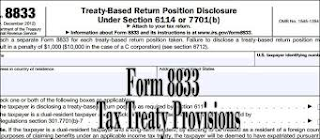 Now according to Law360,, the IRS agreed that it owes the online retail giant $9.5 million for the 2005 tax year, but that there is an income tax deficiency of $2.5 million from the following year.
Now according to Law360,, the IRS agreed that it owes the online retail giant $9.5 million for the 2005 tax year, but that there is an income tax deficiency of $2.5 million from the following year.
In a stipulation entered by the court, the IRS and Amazon agreed that the company had overpaid its taxes in the amount of $9.55 million for the tax year ending on Dec. 31, 2005, and that there is a deficiency of $2.54 million in income tax due from Amazon for the tax year ending on Dec. 31, 2006. The computations do not include interest payments due.
Amazon had previously estimated that the IRS’ notices of proposed adjustments issued for a seven-year period, starting in 2005, could have resulted in a tax liability of $1.5 billion plus interest.
The case is Amazon.com Inc. & Subsidiaries v. Commissioner of Internal Revenue, case number 31197-12, in the U.S. Tax Court.
Read more at: Tax Times blog
















